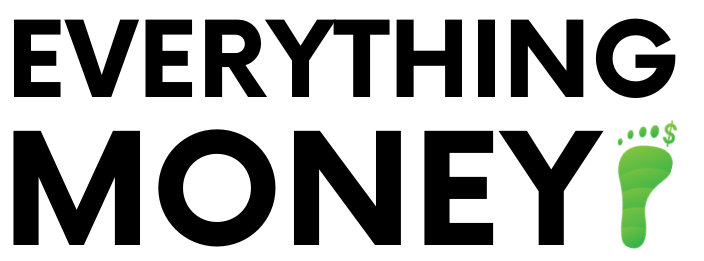
17 Apr Personal Finance Quiz: How Will You Score?
If I asked you to name the individual bones in your legs and feet, chances are you might know the really big ones like femur, tibia and ulna. Unless you had a medical background, you would probably answer with some hesitation, not sure if you recall that biology lesson from middle school.
And guess what…that’s okay. Because unless you went to nursing or med school in college, there really isn’t much of a reason that you would know that stuff. By the way, the ulna is in your arm…thought I’d throw that curveball.
So if you have these things in your body and move them almost every second of the day and you learned about it at one point in school, why would we expect people to know things about money when they weren’t educated at all on it?
And just as confusing, why are so many people confident about their personal finance IQ when the majority of Americans money situation is in disarray?
It’s always interesting to see how confident people are about their money situation until you start asking some basic questions. The most basic investing terms like “depreciation” and “ROI” can cause people to shift nervously. It can also cause many to answer confidently and incorrectly.
I’m rarely shocked anymore about how people misinterpret financial terms and purposes. Why should I be? None of us were ever taught this in school. We were too busy learning how to calculate the circumference of a circle (which has been super helpful this tax season).
So here is a basic personal finance quiz. It’s 10 simple finance questions. I’m also going to be posting this on my Instagram account so people can revisit it there (@everythingmoneyblog). The answers are posted at the bottom of this post.
To give a bar, these are not complicated and most people get less than 8 correct…how will you do?!
The Quiz:
1) When interest rates increase…
| 1. Savers earn less interest and borrowers pay less interest |
| 2. Savers earn less interest but borrowers pay more interest |
| 3. Savers earn more interest, but borrowers pay less interest |
| 4. Savers earn more interest and borrowers pay more interest |
2) What are the 3 most important criteria to consider when investing?
| 1. Leverage, credit, margins |
| 2. Size, insurance, taxes |
| 3. Liquidity, risk, rate of return |
| 4. Margins, dividends, revenue |
3) Interest that is left in an account for a period of time also earns interest. What is this called?
| 1. Extra principle |
| 2. Compound interest |
| 3. Multiplier effect |
| 4. Special interest |
4) What will a lender do if someone who has a higher than average risk of non-payment wants to borrow money?
| 1. Charge a lower interest rate |
| 2. Charge a higher interest rate |
| 3. Reduce that person’s credit score |
| 4. Raise that person’s credit score |
5) Liquidity risk is highest on which type of investment?
| 1. Real estate |
| 2. Individual stocks |
| 3. Savings account |
| 4. Mutual fund |
6) Why are mortgage interest rates generally lower than credit card interest rates?
| 1. Interest rates are usually smaller on larger loans |
| 2. Most consumers don’t usually qualify for a mortgage |
| 3. Mortgages are backed by collateral |
| 4. Federal regulations set credit cards at higher interest rates than mortgages |
7) Which of the following is an advantage of a 401(k) retirement plan over a private savings plan that a worker establishes for retirement?
| 1. Employers may contribute to a 401(k) plan |
| 2. An unlimited amount can be contributed to a 401(k) |
| 3. The money withdrawn from a 401(k) is not taxed |
| 4. The government guarantees a minimum rate of return for a 401(k) plan |
8) What is the primary purpose of an IRA?
| 1. Allows workers to pay taxes with each paycheck |
| 2. Provides incentives for people to save for retirement |
| 3. Creates a savings account for healthcare expenses |
| 4. Eliminates the need for savers to collect Social Security |
9) Stock A has been issued by a new corporation. Stock B is considered a “blue chip” stock. Which is true about these 2 stocks?
| 1. Stock B is expected to earn a higher rate of return than Stock A |
| 2. Stock B is expected to have a dividend and Stock A will not |
| 3. Stock A is expected to hold its value better than Stock B if interest rates rise |
| 4. Stock A is expected to be relatively more risky than Stock B |
10) If your interest rate is raised from 2% to 6%, your interest rate has increased by how much?
| 1. 4% |
| 2. 200% |
| 3. 40% |
| 4. 33% |
Okay, that wasn’t too bad I hope! These are important questions that everyone needs to know as they are likely to be situations that almost everyone will run into at some point in their life.
Here are the answers to the quiz. Leave a comment on how you did and don’t be embarrassed if your score was rough. Use it as motivation to continue your financial education and learn about one of the most important subjects in life–money!
Answers:
Question 1 – 4, Question 2 – 3, Question 3 – 2, Question 4 – 2, Question 5 – 1, Question 6 – 3,
Question 7 – 1, Question 8 – 2, Question 9 – 4, Question 10 – 2

